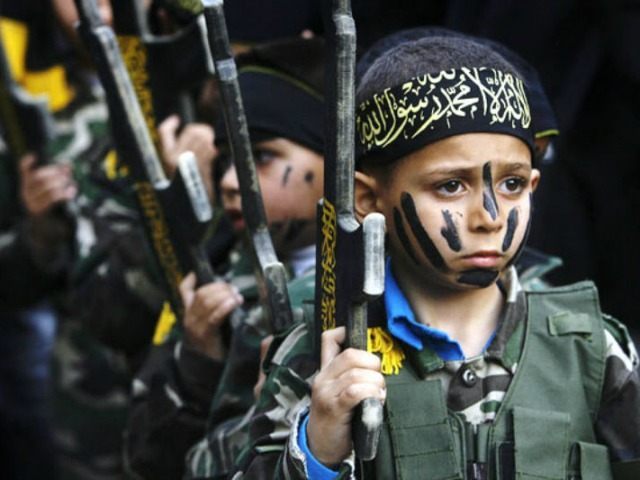The U.S. Department of State’s 2017 Trafficking in Persons Report singles out eight nations for specifically trafficking children for purposes ranging from training and arming them as soldiers to servants and sex slaves. This designation brings sanctions to those countries on certain security assistance and commercial licensing of military equipment.
The list and sanctions, congressionally mandated by the Child Soldiers Prevention Act of 2008, apply on Oct. 1, 2016, and for fiscal year 2018 for the following countries: Democratic Republic of Congo, Mali, Nigeria, Somalia, South Sudan, Sudan, Syria, and Yemen.
Four of these nations – Somalia, Syria, Sudan, and Yemen – are on the list of nations in President Donald Trump’s executive order on immigration seeking to limit and closely screen individuals coming into the United States from these countries. Their governments are either unwilling or unable to properly vet individuals for ties to terrorism before leaving the country. The other two countries on Trump’s travel list are Libya and Iran.
“The term ‘child soldier’ includes any person… who is serving in any capacity, including in a support role, such as a ‘cook, porter, messenger, medic, guard, or sex slave,’” the trafficking report states.
This applies to individuals under 18 for all trafficking of children and children under 15 used as child soldiers.
“The determination to include a government in the CSPA list is informed by a range of sources, including first-hand observation by U.S. government personnel and research and credible reporting from various UN entities, international organizations, local and international NGOs, and international media outlets,” the report states.
Iraq is not listed among the eight nations, but the report is critical of Iraq’s support of some groups that traffic children and downgraded its status from a Tier 1 country — meeting minimal standards to prevent and fight child trafficking — to Tier 2, which puts the country on a “watch list.”
The report states about Iraq:
There continued to be reports alleging the Popular Mobilization Forces (PMF) and tribal forces recruited and used child soldiers; some PMF units received financial and material support from the Iraqi government in 2016. The government did not provide protection services to children recruited and used as soldiers by various armed groups, including ISIS, rendering these children vulnerable to abuse and arrest by security forces.
Here are some of the stories of victims of trafficking included in the report:
NIGERIA — Boko Haram attacked Abdul’s village and kidnapped him when he was 14 years old. They trained him to handle assault weapons such as machine guns, anti-aircraft guns, and rocket-propelled grenades. The group kept him and forced him to carry out various operations during which he was forced to kill 18 civilians. They also forced Abdul to gather intelligence on government forces, where he risked being recognized and prosecuted as a Boko Haram member. After being forced to fight for three years, Abdul decided to flee while on a spying mission, but was recognized as Boko Haram and arrested when he entered an internally displaced persons camp to look for his parents.
CAMBODIA — After Lai’s family fell into debt to loan sharks, her mother asked her to help the family earn more money. Lai, just 12 years old, was examined by a doctor and issued a certificate of virginity. Her mother then delivered her to a hotel where a man raped her repeatedly. For nearly two years, Lai’s mother continued to sell her to make money to pay off their debts. After learning her mother was planning to sell her again, this time for a six-month stretch, Lai fled her home and found sanctuary in a residence for sex trafficking victims.
AFGHANISTAN — When Pasha was 10 years old, his family pulled him out of school so he could help out by earning money working in a brick kiln. Pasha’s family had borrowed money from the kiln owner to help take care of Pasha’s ailing father, and the interest charged on the loan made the debt insurmountable. For three years, Pasha has worked 12-hour days hauling a handcart full of dirt alongside his father and siblings. If Pasha’s family cannot pay off the debt, he and his siblings will inherit it and possibly pass it on to their own children.

COMMENTS
Please let us know if you're having issues with commenting.